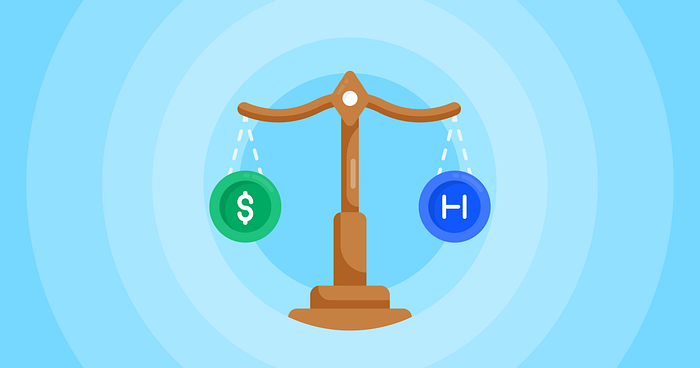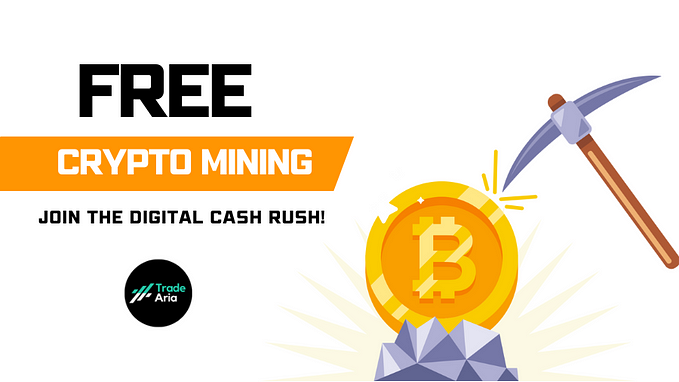Yesterday, we’ve launched an impermanent loss recompense program across liquidity pools with HUB. Here’s its terms.

Protection offered in the program may motivate HUB holders to provide liquidity and earn in-pool fees, keeping their HUB tokens lossless.
Please note that the program applies to HUB tokens exclusively. In this article, we will provide examples and lay out the recompense principles in detail.
Opportunity Cost of Providing Liquidity
Many HUB holders hesitate to add their asset into pools because every time HUBs are bought from a pool, its HUB part decreases.
Sometimes, it may be more rewarding to keep HUB in one’s wallet and later sell it at a higher price than to send tokens into liquidity and gradually sell them at a lower price.
This scenario is called impermanent loss, and it relates to gains you would have otherwise generated.
Example of impermanent loss linked to opportunity cost:
Say, the user adds 10 HUB and 1 BNB into the HUB-BNB pool.
At the time of provision:
- 1 HUB = $35
- 1 BNB = $350
When HUB is actively bought from a liquidity pool (rises in price), the number of HUBs drops, while the number of BNBs grows.
As a result, the in-pool ratio of user’s tokens will be not 10 HUB to 1 BNB but, for example, ≈ 5 HUB to 2 BNB. In this situation, the price of 1 HUB increases due to demand and its purchase from the pool.
Assume that HUB’s reached $100, while BNB’s remained unchanged at $350 for simplicity.
At the end of the day, if the user decides to remove their liquidity from the pool, they will get back 5 HUB instead of 10 they had initially sent in.
Those 5 HUB will now be worth $500 according to the new rate. But if the user had simply kept HUB in their wallet, they would have had 10 HUB totaling at $1,000.
The opportunity cost here would be $500 ($1,000-$500). This is a shortcoming of taking part in liquidity pools known in the DeFi market as ‘Impermanent Loss.’ It is impermanent because if HUB’s price returns to the original state, there will be no loss anymore and the user will have still earned on fees paid by traders.
In the scenario above, the user loses $500 in potential profits. But we offer a solution to this problem.
Opportunity Cost Recompense
Having opportunity costs covered entirely, HUB owners may be incentivized to send their assets into liquidity and profit from in-pool fees without fearing to lose their precious asset.
The Minter team has prepped a solution that will protect HUB holders against losing their HUBs upon growth in price.
When HUBs are bought from a pool, HUB holders eventually have fewer tokens, but we’re ready to recompense that:
- 50% of HUB tokens lost, provided that liquidity is supplied for a period of 1 year
- 100% of HUB tokens lost, provided that liquidity is supplied for a period of 2 years
The recompense program will amount to 10,000 HUB.
The ability to request recompense in the event of impermanent loss will be available to users in 1 calendar year after adding liquidity into the pool, but not sooner than March 1, 2023.
For example, if you’ve enhanced the BNB-HUB pair’s liquidity on March 1, 2022, you’ll be able to claim a 50-percent recompense in the event of impermanent loss from March 1, 2023 until February 28, 2024.
Starting from March 1, 2024, users will be able to claim a 100-percent recompense.
Once again, to get 50% back, you need to provide liquidity over a year, and 100%, over two.
Supported pools:
Important! The addresses are prohibited from:
- Reducing the number of LP tokens of a given pool (withdrawing liquidity in part or in full)
- Move LP tokens to other addresses
Smart HUB Token HODL, or Advantages of Supplying HUB to Liquidity Pools
- Users provide liquidity into the pool for 1 or 2 years, executing the HODL strategy and contributing to the token’s growth
- Users earn in-pool fees along the way: 0.2% on all trades made in the pool
- Users are shielded from losses in HUB tokens that go hand-in-hand with price growth as their HUB part doesn’t go down
- Users enrich HUB liquidity, making the project attractive to external participants









